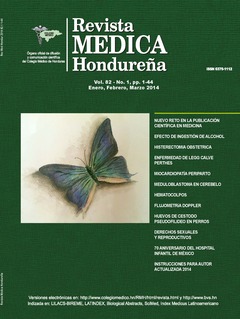Doppler Fluxometry in Maternal Fetal Medicine
Keywords:
Doppler effect, prenatal diagnosis, intrauterine growth restriction, ultrasoundAbstract
Introduction and objective: Doppler fluxometry techniques have allowed us to understand in a better way fetal and placental hemodynamics and their physiological variants. This has brought the opportunity to carry out actions to help decrease fetal and neonatal morbidity and mortality. The aim of this article is to provide a clear view of the applications that Doppler fluxometry offers us today and how to apply it in obstetric practice. Methods: Electronic databases (Cochrane, PubMed, Inari, Ovid, InterScience, Elsevier) and printed text books were reviewed to obtain the best available evidence on the usefulness of the fetal-placental Doppler fluxometry and its clinical application. Results: Doppler assessment is currently a diagnostic tool of great value in the field of maternalfetal medicine. It is vital for the diagnosis and management of fetus that are complicated with fetal growth restriction (FGR) or anemia (secondary to Rh alloinmunization or Parvovirus B19). Likewise, has been useful for chromosomal abnormality screening during the first three months of pregnancy and to establish the risk of future onset of Preeclampsia and adverse perinatal outcomes. Conclusion Doppler fluxometry has revolutionized the traditional concept of Perinatology. It has given us the opportunity to understand that the physiopathologic process of the sick fetus presents a hemodynamic deterioration in a sequential logical order and not randomly. This concept is vital to achieve a fetal monitoring of quality, which allows us to perform opportune interventions optimizing the ideal moment to induce the childbirth and to modify the type of prenatal control that we will offer to our patients. Likewise, it can now defer the realization of fetal invasive procedures and accomplish a monitoring and vigilance in cases of fetal anaemia secondary to school Rh alloimmunization or fetal infections.
Downloads
1888




